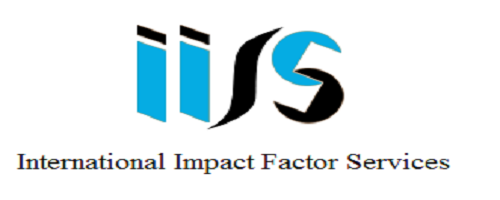Details
A Comparative Study Between Two Commercial Banks Using Multi Server Queuing Model
R. K. Shrivastava
Guide, Dept. of Mathematics, Shrimant Madhav Rao Scindia Govt. Model Science College, Jiwaji University, Gwalior, M.P. India.
Hina Gupta
Research Scholar, Dept. of Mathematics, Shrimant Madhav Rao Scindia Govt. Model Science College, Jiwaji University, Gwalior, M.P. India.
Download PDF http://doi.org/10.37648/ijrst.v15i03.003
http://doi.org/10.37648/ijrst.v15i03.003
Abstract
The Study conducted for a Comparative Evaluation of customer service efficiency on HDFC and ICICI Bank applying a Multiserver Queuing model. The major objective of this research paper is to evaluate customer service efficiency, system utilization, average customer waiting time in a queue and in the system, and service capabilities for both bank under varying arrival rates. For this research purpose data of both banks which contains arrival and service rate were collected by direct survey and interview during peak working hours (11:00 am to 2:00 pm) for three consecutive working days. The findings shows that HDFC Bank has demonstrate lower average system utilization (𜌠= 0.45) compared to ICICI (𜌠= 0.52). It express relaxed service surroundings because server are not overloaded and comfortably handles peak loads during peak hours and it also takes shorter average waiting time of customer in a queue. On the other hand, ICICI bank handles a higher customer request with minimal servers, and little faster overall processing time (waiting +service) that indicates better allocation of resources and efficiency in operations.
Keywords: Waiting line; Banking system; Arrival Rate; service rate; Multi-server queuing model
References
- Abiodun, R. O., & Omosule, I. (2015). Queuing model for banking system: A comparative study of selected banks in Owo Local Government Area of Ondo State, Nigeria. International Journal of Engineering Research and Technology, *4*(4), 191–195.
- Chen, M., Wang, Y., & Zhang, H. (2020). Experimental evaluation of pulse-based charging in lithium cells. Electrochimica Acta, *353*, 136499. https://doi.org/10.1016/j.electacta.2020.136499
- Agyei, W., Asare-Darko, C., & Odilon, F. (2015). Modeling and analysis of queuing systems in banks: A case study of Ghana Commercial Bank Ltd. Kumasi Main Branch. International Journal of Scientific and Technology Research, *4*(8), 180–185.
- Akande, A., Mohammed, U. N., Ibrahim, A. M., & Adedayo, O. A. (2022). Application of multi-server queue model (M/M/C) for waiting lines management in banking system. Journal of Applied Science and Technology, *19*(3), 45–52.
- Asogwa, O. C., Eze, C. M., & Edeaja, M. T. (2019). On the application of queuing model in Nigeria banking sector: A case study of Zenith Bank Plc, Abakaliki Branch. International Journal of Current Research, *19*(2), 1–8.
- Kabamba, A. M. (2019). Modeling and analysis of queuing systems in banks: A case study of Banque Commerciale du Congo- BCDC/Mbujimayi (MPRA Paper No. 92579). Munich Personal RePEc Archive. https://mpra.ub.uni-muenchen.de/92579/
- Lee, T., & Kim, H. (2022). Neural network-based fast charging algorithm for electric vehicles. IEEE Access, *10*, 40412–40423. https://doi.org/10.1109/ACCESS.2022.3167094
- Odunukwe, A. D. (2013). Application of queuing models to customers management in the banking system. Caritas University Journal of Mathematics and Statistics, *1*(2), 14–20.
- Toshiba, S., Sanjay, S., & Anil, K. K. (2013). Application of queuing theory for the improvement of bank service. International Journal of Advanced Computational Engineering and Networking, *1*(4), 15–18.
- Zewude, B. T. (2016). Queuing modeling for comparative study of banking system on Commercial Bank of Ethiopia Tona Branch and Dashen Bank: The case of Wolaita Zone, Ethiopia. Research Journal of Finance and Accounting, *7*(21), 11–16.











